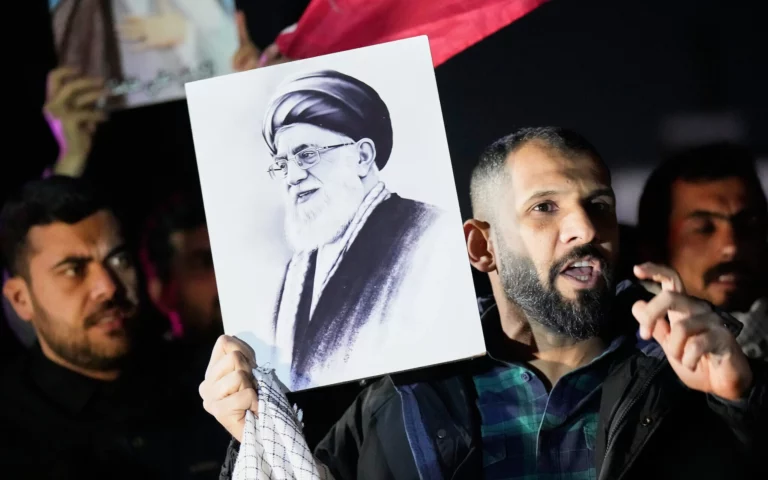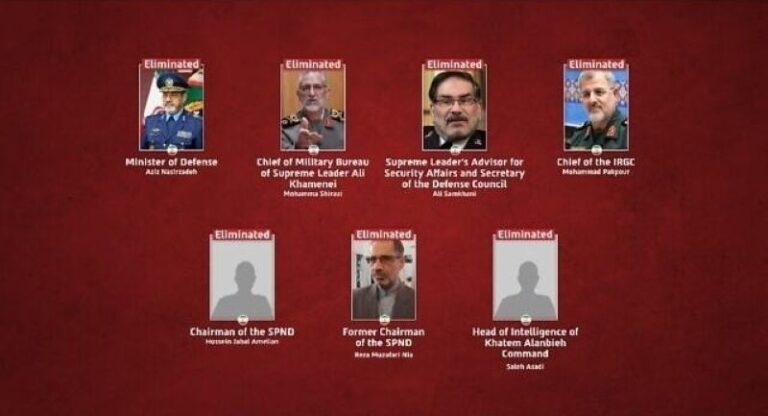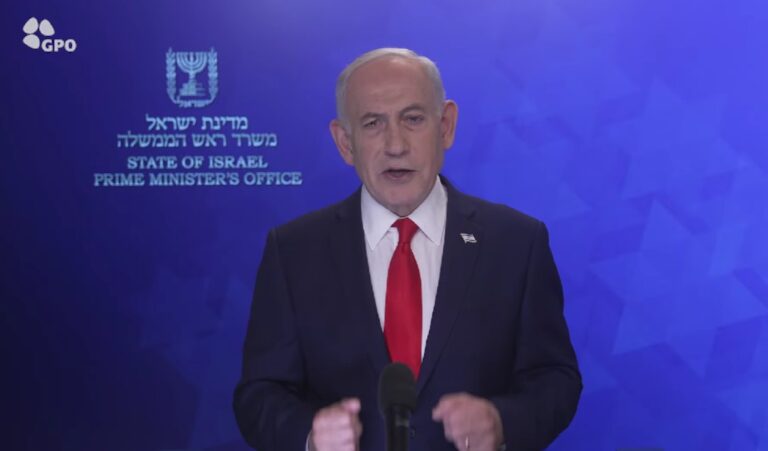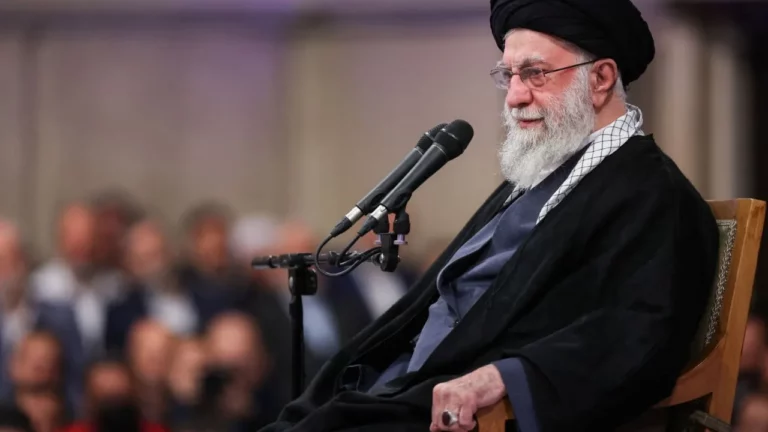נביא מקרבך מאחיך כמני יקים לך ד’ אלקיך אליו תשמעון (18:15)
A biography was once written about Rav Yehoshua Leib Diskin. Before publication, the manuscript was shown to the Brisker Rav for his comments and suggestions. After reading it, he commented that everything he read was accurate and appropriate to be printed except for one anecdote.
The author recounted that the Brisker Rav’s father, Rav Chaim Soloveitchik, had such respect for Rav Yehoshua Leib that he remarked regarding him, אליו תשמעון – you shall listen to his words. The Brisker Rav argued that an expression reserved by the Torah for a prophet of Hashem may not be used, even colloquially, in reference to a human being, no matter how great he was. Although the author insisted that the story was true and confirmed by witnesses, the Brisker Rav held his ground and the passage was removed.
When he was told about this incident, the Satmar Rebbe smiled and asked someone to bring him a Volume 1 of the Orach Chaim section of Shulchan Aruch. He opened it to chapter 125 and pointed to the marginal notes of Rav Akiva Eiger which are printed there. Rav Akiva Eiger quotes the opinion of the Arizal, who disagrees with the opinion of the Shulchan Aruch there, and concludes אליו תשמעון.
The sharp mind and phenomenal recall of the Satmar Rebbe allowed him to immediately remember where the great Rav Akiva Eiger had quoted this phrase in reference to the Arizal. Nevertheless, he suggested that this comment posed no challenge to the position of the Brisker Rav, as the Arizal was but an angel in human guise, for whom such words are fitting.
ועשיתם לו כאשר זמם לעשות לאחיו ובערת הרע מקרבך (19:19)
In the event that a set of witnesses is found to be lying and conspiring through the testimony of a second set of witnesses who claim that the first set were in a different location at the time of the alleged incident, the courtpunishes the first set by inflicting upon them the punishment they would have brought upon the defendant through their testimony. Rashi writes that this law only applies in the event that their conspiracy is discovered before the defendant is punished. If he has already been killed as a result of their testimony, they are no longer to be put to death.
In his commentary on Makkos (5b), Rashi explains that this law is derived from the Torah’s wording כאשר זמם לעשות לאחיו – as he conspired to do to his fellow. A person is only considered one’s fellow as long as he is alive. Once he has been put to death, he is no longer called one’s fellow, and this law is no longer applicable. The Ritva questions Rashi’s derivation by pointing out that the Torah uses the word אחיו (fellow) in reference to the dead both when discussing the mitzvah of yibum (25:6-7) and in reference to Nadav and Avihu after their deaths (Vayikra 10:4).
The Rashash (Sanhedrin 10a) defends Rashi’s explanation by suggesting that the word אחיו has two different connotations: a familial relative, and a “brother” with whom one is united through a common obligation in mitzvos. The difference between them is that while the former is still appropriate after death, which doesn’t negate a familial connection, the latter is only applicable as long as both parties are still alive, since the Gemora in Shabbos (30a) teaches that a person becomes exempt from all mitzvos after he dies.
In light of this explanation, it is perfectly appropriate for the Torah to use the expression אחיו in conjunction with the mitzvah of yibum, which applies only to a person’s brother. This term is also fitting to be used in association with the deceased Nadav and Avihu when discussing them with their cousins Mishael and Eltzafan, as this bond wasn’t broken through death.
Our verse, however, is discussing the laws of conspiring witnesses and their scheme to falsely punish “their brother,” the defendant. Since there is no familial relationship between the parties, it can only be referring to their common obligation in mitzvos. If the verse refers to the defendant as their brother, this law can only be applicable when he has yet to be punished and is still alive, thus providing a clear source for the ruling of the Gemora in Makkos, exactly as Rashi explained.
וענו ואמרו ידינו לא שפכו את הדם הזה ועינינו לא ראו (21:7)
A proctor was administering a final exam for a large college class. After giving several warnings, the proctor announced that time had expired and all exam booklets must be brought forward. One student continued frantically writing. When he brought his booklet forward a few minutes later, the proctor refused to accept it.
The student exclaimed, “Do you have any idea who I am,” implying that he came from a prominent family and deserved leniency. The proctor answered, “I don’t know, and I don’t care. You broke the rules, and now you’ve failed this course.” The student bellowed even louder, “Do you have any idea what my name is,” again attempting to invoke his family’s prominence. The proctor responded, “It doesn’t make a difference. Rules are rules, and you broke them.” The clever student, secure in his anonymity, smugly opened the stack of exam books on the proctor’s desk to the middle, stuck his book in, and quickly walked out the door.
Although this amusing story may be apocryphal, it teaches us the value of being an anonymous part of a bigger group. When the Ohr Someach – Rav Meir Simcha of Dvinsk ztz”l – was ill, he was asked for his mother’s Hebrew name so that Jews around the world could daven for his speedy recovery. Just like the student taking the final exam, he replied that he didn’t want to be singled out and have his individual deeds examined. Instead, he advised them to pray for the well-being of all sick Jews, a larger group which would automatically include him.
This insight into the value of being part of a community can help us understand the Maharal’s explanation of a perplexing idea in Parshas Shoftim. If a murdered body is found in a field, the Torah requires the elders of the nearest city to perform a ritual known as eglah arufah (the axed heifer), in which they slaughter a cow in a valley with an axe to atone for the innocent blood which was shed. They must then announce that they didn’t spill the blood of the deceased.
Rashi explains that the pious sages aren’t suspected of cold-blooded murder. Rather, they must testify that they didn’t see this wayfarer leaving their city without escorting him and providing him with food. This requirement is difficult to comprehend. In what way would providing a visitor with food have protected him from a would-be murderer?
The Maharal explains that on a natural level, having extra food in his backpack wouldn’t have protected the traveler against armed robbers. On a spiritual level, however, it would have assisted him greatly. When a person exists in a vacuum, he is judged on the basis of his own merits. He may be righteous and merit the performance of miracles, but the average person is not on such a level. If so, what is he to do? When a person is part of a larger group, he is able to benefit from their accumulated merits. This may protect him even if his own merits are insufficient.
When the traveler is lodging in the town, he is automatically part of the community, but when he sets out on his own, he breaks this bond. Escorting him on the beginning of his journey and giving him food enables him to maintain his link to the city even when he is traveling on his own. A town which allows a visitor to depart without cementing the connection between them is partially liable for any misfortunate that befalls him. It may have been in their power to prevent it, and the elders of the city closest to the corpse are required to testify that this wasn’t the case.
As the month of Elul begins and we prepare for the impending judgment of Rosh Hashana, we may find comfort in the message of the Maharal. We are all “travelers” through this world. If we live in our own vacuums, we will be judged on our own merits in less than a month, a terrifying thought. However, if we affiliate ourselves with a community, becoming an active part of our synagogues and volunteering to help with communal organizations, we will benefit from their collective merits. As a result, we should enjoy an inscription for a year of health, happiness, and all good blessings.
Parsha Points to Ponder (and sources which discuss them):
1) The Torah admonishes (16:19) judges against accepting bribes and warns that doing so will blind the eyes of the wise and twist the words of the righteous. Why does the Torah forbid the judge to take a bribe but not similarly prohibit the parties from giving a bribe? (Tosefes Beracha)
2) A king is not permitted to have more than 18 wives (Rashi 17:17). If a man was married to 19 women and subsequently appointed king, was he required to divorce one of them? (Derech Sicha)
3) The Torah forbids (18:10) a Jew to practice sorcery. Is it permitted to perform the slight-of-hand tricks commonly practiced by magicians today? (Chochmas Adam 89:6, Torah L’Daas Vol. 5)
4) One who kills accidentally is required to flee to one of the cities of refuge and to remain there until the death of the Kohen Gadol (19:4-5). In the event that he exits before this time, even temporarily, the גואל הדם – redeemer of the blood – is permitted to kill him (35:26-27). If the accidental murderer encounters the blood-avenger, is he permitted to kill him in order to protect himself, or is that considered an act of murder? (Mishneh L’Melech Hilchos Rotzeach 1:15)
Answers to Points to Ponder:
1) Rav Boruch HaLevi Epstein suggests that if the Torah explicitly forbade litigants to bribe the judge, they would be even more inclined to do so. Because they would know that the other party was unlikely to do something which is prohibited, they would be tempted to offer a bribe in an attempt to gain the upper hand in the judge’s eyes. However, in the absence of a prohibition against giving a bribe, they will assume that there is no reason to do so. The other litigant will have no reason to refrain from offering a bribe of his own, and no advantage will be gained. In other words, by not forbidding this undesired behavior, the Torah actually made it much less prevalent.
2) The Gemora in Yevamos (61a) rules that if a Kohen is married to a widow and is subsequently appointed Kohen Gadol, he isn’t required to divorce her. Even though a Kohen Gadol may not marry a widow, because he married her permissibly when he was still an ordinary Kohen, he is permitted to remain married to her. However, after citing this ruling, Rav Chaim Kanievsky was unsure whether it also applies to the case of a commoner who married 19 women before being appointed king.
3) The Chochmas Adam cites the Rambam, who maintains that slight-of-hand is included in the prohibition against sorcery. He writes that his contemporaries who perform such acts of magic violate a Biblical commandment, and those who hire or command them to perform transgress the prohibition against placing a stumbling block before the blind. He adds that it is forbidden to watch such a performance unless the magician is a non-Jew, who is not included in this prohibition. Rav Ovadiah Yosef similar rules that magic tricks which involve nothing more than quickly moving one’s hands to create the effect of performing magic are Biblically forbidden. However, Rav Moshe Feinstein is quoted as being lenient in a case where everybody knows that the seemingly magical effects are being created through natural means. For all questions of practical halacha, a Rav should be consulted.
4) The Mishneh L’Melech writes that he is unsure about this question. He cites the Gemora in Sanhedrin (82a), which rules that when Pinchas entered Zimri’s tent to kill him for engaging in forbidden relations, Zimri would have been permitted to defend himself by killing Pinchas who was pursuing him to kill him. He suggests that the situation with Pinchas and Zimri should be analogous to our situation, in which the redeemer of the blood is planning to kill the accidental murderer, which would indicate that the murderer is permitted to kill the redeemer of the blood in self-defense. However, he ends off by noting that this proof is not conclusive, and he lacks a definitive resolution to his question.
© 2012 by Ozer Alport.










